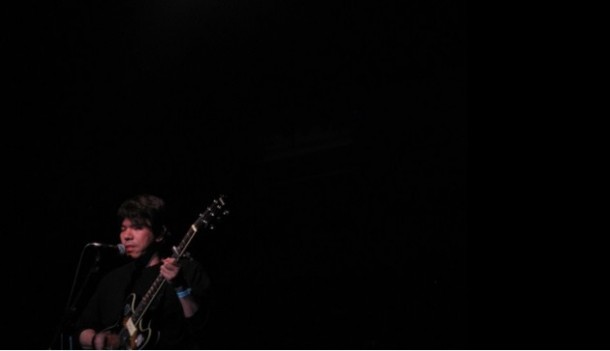Over a decade ago now, I discovered the music of Elliott Smith on a Nirvana messageboard. Looking back, it was most definitely a potent catalyst for everything I have looked for in music – and elsewhere – ever since. Someone recommended I check out ‘Tomorrow, Tomorrow’ from XO as a starting point, so I did. I was immediately infatuated; like a giddy moth to a burning flame, instantly seduced by the mournful turns and phrases of Elliott’s words and chords. Without hesitation, I threw myself into his varyingly exceptional discography, listening to nothing else for days on end in the depths of October. Not long afterwards, skimming through the same Nirvana messageboard, I learnt that Elliott had taken his life. Two stab wounds to the chest. Self-inflicted. The most abject and heart-wrenching of ends. A mere thirty-four years old. Almost twelve years on, Elliott is still right up there with my all-time favourite singer-songwriters. Without a shadow of a doubt, he has quite literally transformed my life – and many, many others – with his irresistible, harmonically peerless craft.
About an hour I woke up, made a cup of tea and decided to idly strum my guitar. It’s a drizzly Friday – nothing doing. The end of the week. All ticking along, as is. Plectrums are here, there and everywhere, but the closest one at hand is a thick, purple plectrum, attached to the wall at the top right hand corner of a setlist that reads: Glenn, BCT, Nosferatu Man, etc. The plectrum belongs to David Pajo, boundlessly influential Slint guitarist, solo artist and collaborative maestro with the likes of Tortoise, The For Carnation, Royal Trux and innumerable other bands that fall firmly under the category “cool”. A couple of years after stumbling upon the music of Elliott Smith, my discovery of Slint – namely their now legendarily revered 1991 album Spiderland – re-aligned the trajectory of my innate desire to worship certain bands, scenes and sounds, in the direction of Slint and the music of David Pajo. Of course, many others would come to occupy that space, but Slint and Pajo’s solo work reigned supreme, both managing to summon a certain feeling of hintergedanke, forever looming somewhere beyond.
Following Slint’s Dublin show at the Button Factory in August last year, Pajo handed me the aforementioned plectrum. Having interviewed him a couple of times before and met the night before in Belfast and several years before in Dublin, I knew he was an extraordinarily pleasant and self-effacing person – the archetypal modest master. “We’ve got a couple more shows in the States and that’s it – that’s definitely the end of it,” he said, speaking of Slint’s latest reunion. It pleased me to hear that, in a way. Slint’s legacy was well and truly set in stone, three triumphant reunions later. I left Pajo standing, smoking outside the Button Factory side door, with the niggling impression that he wasn’t content. His face wore worry. His expressions and way of talking suggested a nagging melancholia, something more specific and real than some sort of general pensive unease.
Having briefly set my guitar to one side earlier, I started to absentmindedly flick through Twitter. The first tweet I laid my eyes upon read, “My heart is breaking reading about @davidpajo. His music changed my life and I’m so glad he’s still with us.” My heart immediately sank. Despite the fact it very obviously read, “I’m so glad he’s still with us,” I somehow was convinced he was gone. In the most split of seconds, I felt the same sinking, doom-laden feeling that visited me a few years back when I learnt that a close family member – someone I greatly looked up to throughout my life – had committed suicide. It’s an unmistakable pang of dread, as anyone who has experienced only knows too well. With the second part of the aforementioned tweet finally kicking in, I searched Twitter for more information. Pajo had posted a detailed suicide note titled I Surrender To My Broken Heart on his blog along with a genuinely harrowing painting signed in very familiar handwriting. I skimmed it – far too personal to read thoroughly or consider at any length – and soon discovered he was still alive.
That unmistakable feeling of sickness has subsided, replaced with the most earnest belief that David Pajo will make a full recovery in time. Everyone wills it and it will be. David Pajo, an insurmountable inspiration; a guitar hero and singular tale-weaver. Even having just discovered a very distressing post on his blog from two days ago titled Nearing the Homestretch, accompanied by a photo of a noose tied around his neck, I know that the tide will turn in his favour. I pray for Pajo and remain utterly indebted to him – just as I remain utterly indebted to Elliott Smith – for his music, his words, his tales and odes and lullabies. I am intensely glad that this post isn’t titled For David Pajo (1968-2015). Brian Coney





